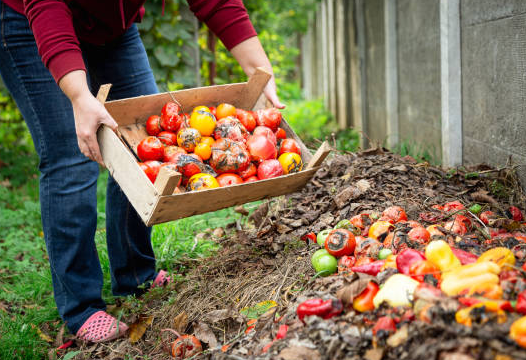Contrary to popular belief, compost piles should not have unpleasant odors. A well-maintained compost pile should only have a faint earthy smell. However, if something goes wrong in the composting process or if certain parts of the pile become unbalanced, the compost can start to emit foul odors like rotten eggs, ammonia, or even worse. Here are the most common causes of smelly compost and some simple solutions to make your compost smell better.
Why Does Compost Smell?
The composting process relies on aerobic bacteria and other beneficial microorganisms that thrive in oxygen-rich environments. When oxygen levels decrease in the compost pile, these “good” bacteria begin to die off, causing the composting process to stop or become interrupted. Some of the most common reasons this happens include:
-
Poor airflow: If the compost pile isn’t regularly aerated or is waterlogged, it will deplete its oxygen supply.
-
Too much water: Excess water reduces available oxygen, making it harder for compost materials to break down.

-
Incorrect or unbalanced compost ingredients: Healthy compost is made of a balanced mixture of carbon-rich (browns) and nitrogen-rich (greens) materials. However, too much nitrogen, such as food scraps or rotting food like meat and dairy, can lead to foul odors.
How to Fix Smelly Compost
Compost can smell at any time of the year, especially in spring and summer when the weather warms up. The following methods can help your compost smell better quickly, reducing the chance of attracting garden pests or annoying your neighbors.
1. Aerate Regularly
The most common cause of foul odors in compost is a lack of airflow and oxygen. You can solve this problem by regularly aerating the compost pile with a garden fork or shovel, or using a compost tumbler. The frequency of aeration depends on the compost ingredients and season, but for hot composting, it’s recommended to aerate every 3-4 days.
2. Use More Brown Materials
A well-balanced compost should contain about 3 parts carbon-rich ingredients (browns) to 1 part nitrogen-rich ingredients (greens, like food scraps). If there’s too much food waste in your compost, it will become too wet, which reduces airflow, slows down decomposition, and causes foul smells. To avoid this, always add brown materials like dried leaves, straw, or shredded cardboard when adding kitchen scraps to your compost.
Examples of brown materials include:
-
Shredded autumn leaves
-
Shredded paper and cardboard (without colored ink)
-
Weed-free straw
-
Sawdust and wood chips
-
Dry plant matter
-
Branches and twigs
-
Finished compost
3. Reduce Moisture
Adding too many wet kitchen scraps is one of the main reasons compost becomes too soggy. Compost that is exposed to the elements or sealed too tightly can also become overly moist and start to smell.
If you’re dealing with wet compost in a closed bin or covered compost system, remove the lid on sunny days to let some excess moisture evaporate. For better results, it’s best to turn the compost without the lid. However, if the compost is too wet and exposed to the elements, cover it with a waterproof tarp or other cover to keep rainwater out.
Placing dry materials like straw or autumn leaves on top of the compost can also help absorb excess moisture and reduce unpleasant odors.
4. Add Compost Accelerators
You can speed up the composting process and reduce odors by adding compost starters or accelerators. Store-bought accelerators typically contain beneficial microorganisms that help speed up the decomposition process. You can also use products you already have at home as compost accelerators, like compost tea or Bokashi tea harvested from a Bokashi composting system.
5. Improve Drainage
Placing the compost pile in a well-drained area will help ensure it doesn’t stay soggy for long periods. If your compost bin is in an area with poor drainage, and you can’t move it, you may need to level the soil around the bin or install a French drain or another drainage system. This will help drain water away from the compost bin and allow the pile to dry out more quickly.
6. Avoid Meat and Dairy
Certain food scraps, particularly meat and dairy, are more likely to cause bad odors. Most compost experts recommend not putting meat and dairy products into compost bins because they smell bad on their own and attract pests.
By following these simple tips, you can quickly get your compost pile back on track and prevent it from emitting unpleasant odors. A well-balanced, well-maintained compost pile is not only better for your garden but also a more enjoyable part of your sustainable gardening practice. Happy composting!

